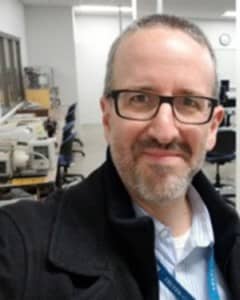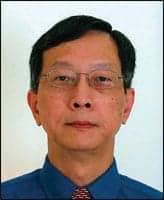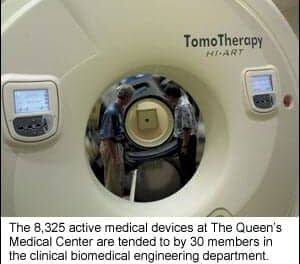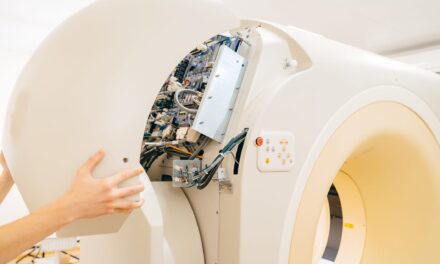By Jeffrey Ruiz
As HTM professionals, it’s important to remember who we are caring for—and why we’re doing it. I recently came across the obituary of a former friend’s father and it took me down memory lane. My friend had cystic fibrosis and passed back in 1993, but seeing her father’s obituary reminded me of my early years in healthcare.
To pay my way through school, I worked in the home healthcare field—an industry that provided me with invaluable lessons in patient interaction. To help illustrate my point, during this time I delivered medical equipment, as well as set it up and instructed people about its use. Many times, my visits were not viewed in the most positive light. After all, the patients I would visit were often just recovering from a hospital stay and were not fully stable or recovered.
Also in many of these deliveries, I would have to instruct the patient’s family about the equipment since the patient was not in the best condition to receive information. Although I was very shy in my early years in the workforce, I really enjoyed interacting with patients and their families—something that also helped me develop interpersonal skills. Plus, the ability to help patients in their times of need by providing them with medical equipment was very rewarding.
But remembering my friend with CF reminded me of one of the most difficult parts of the job: having to pick up the equipment. In cases where the equipment was only used for a short time, the pick-up process was fine since the patient was fully recovered or on the road to recovery. Other times, however, I had to pick up equipment for patients who had not recovered. In these cases, the patients’ families often viewed me as an extension of the disease or injury that took their loved one. Those were the hardest pick-ups as I tried to console the families and be supportive of their needs.
When my friend was dying, it was so hard to be around her. We first met when I was filling in for a route that included oxygen delivery to her home. After meeting her, I remember thinking that she was one tough cookie. After all, she was very demanding, making sure the flow of the oxygen was at the exact setting, that the humidifier water was changed, and that many other tasks were performed according to her specifications. But as I became her regular service driver, we developed a great friendship. And the lessons she taught me I still take with me today.
For the Patients
When we enter patients’ rooms, we are their guests. We are their visitors. We must greet ourselves warmly. We must announce who we are and what we are doing. And, most importantly, we must ask them if they need anything.
During my stint in home healthcare, I learned that you always leave a patient’s home the way you found it. For instance, if I moved furniture to set up a bed, I would ask the family how they wanted me to put back the furniture. Plus, I would ask the patient if he or she needed anything, and then worked to address those issues. Even if I couldn’t answer the request quickly, I served as a conduit to address the patient’s needs.
Today I work in a field that uses technology to care for hundreds of patients every day. I may not interact with patients as much as I did when I began my career, but I still consider how every device, every project, and every decision will affect our patients. I lost my friend to CF in 1993. She battled and fought the disease for as long as she could. But she enjoyed life and was wise beyond her years. And she helped instill in me the importance of helping people and knowing that, in the end, we are here to help one another.
So, what’s your ‘why?’
Do you have a special story of how you got involved in this field? Was there a patient, family member, friend, or mentor who helped instill in you the willingness to help others? Feel free to share you stories in the comments section below.
Jeffrey Ruiz is technology manager for a large hospital, and also is an adjunct professor in the biomedical engineering program at a community college, both in western Michigan. Questions and comments can be directed to chief editor Keri Forsythe-Stephens at [email protected].







Jeff, this is an excellent and touching story about your personal experience and the “why” you got involved in the field. Well, your why is much like mine. I started as a U.S.Navy Corpsman where I worked directly with ICU patients, hemodialysis and then worked in the research and procurement of organs for transplantation. I loved the technology and how it helps patients. Thanks
German, thanks for sharing your “why”. I agree on how we use technology to help patients. Also your hands on experience helped instill that caring through technology background. Thanks again for sharing.